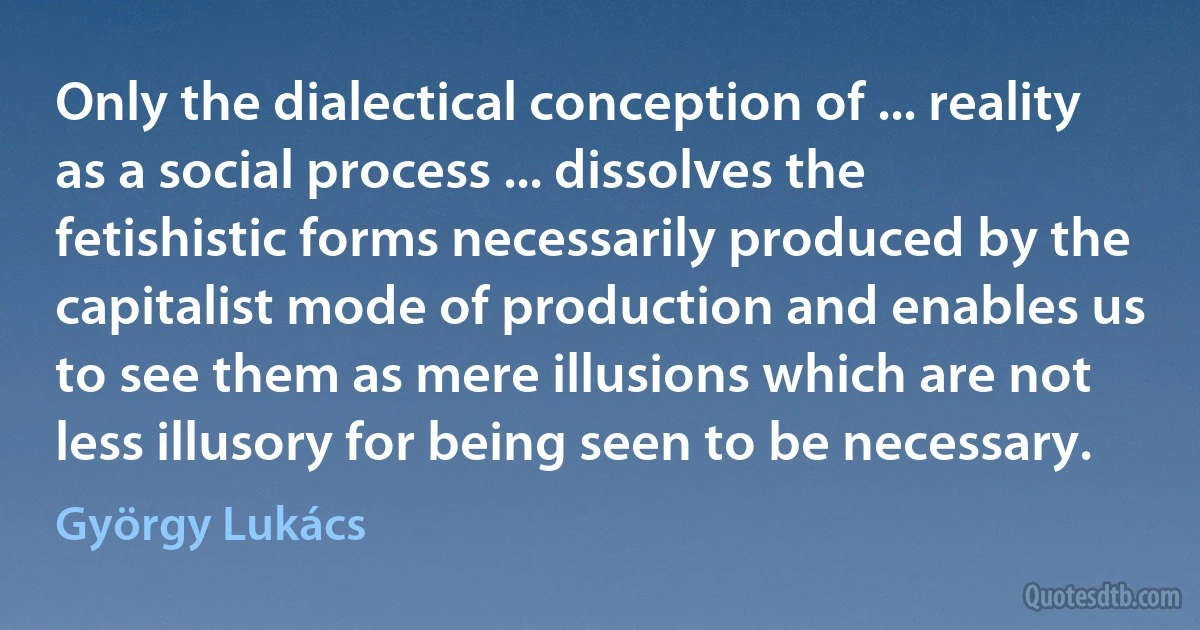György Lukács quotes
Admirers of the ‘purified' Nietzsche have been hard put to unite his sanctioning of barbarity with an often subtle and rarefied cultural critique. But we can easily dispose of this dichotomy. In the first place, the union of ultra-refinement and brutality was by no means a personal quirk requiring psychological elucidation, but a universal, psychical-moral distinguishing mark of imperialist decadence.

György Lukács
History does not merely unfold within the terrain mapped out by these institutions. It does not resolve itself into the evolution of contents, of men and situations, etc., while the principles of society remain eternally valid. ... On the contrary, history is precisely the history of these institutions, of the changes they undergo as institutions which bring men together in societies. Such institutions start by controlling economic relations between men and go on to permeate all human relations.

György Lukács
History does not merely unfold within the terrain mapped out by these institutions. It does not resolve itself into the evolution of contents, of men and situations, etc., while the principles of society remain eternally valid. ... On the contrary, history is precisely the history of these institutions, of the changes they undergo as institutions which bring men together in societies. Such institutions start by controlling economic relations between men and go on to permeate all human relations (and hence also man's relations with himself and with nature).

György Lukács


